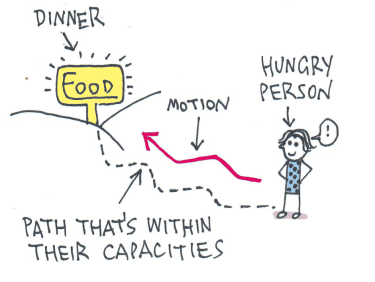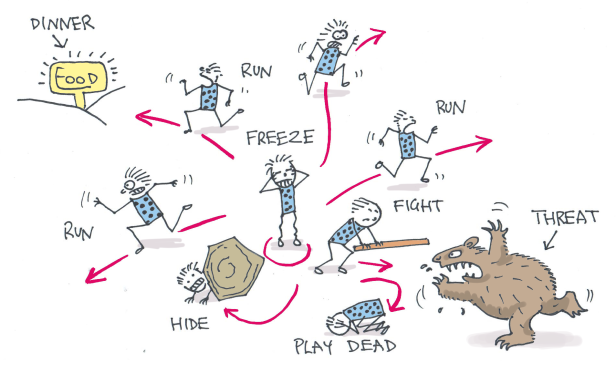 Refugees, Aborigines, and the unemployed will change their behaviour if they are treated cruelly enough. At least that’s according to the wisdom of those who design multi-billion dollar Australian Government programs. I’d like to meet some of those people.
Refugees, Aborigines, and the unemployed will change their behaviour if they are treated cruelly enough. At least that’s according to the wisdom of those who design multi-billion dollar Australian Government programs. I’d like to meet some of those people.
The latest torment-based innovation is drug-testing for welfare recipients. Absolutely no informed person thinks it will work, or is fair, or will produce anything other than greater human suffering. The head of the Australian Medical Association gave it a “Nasty star” as “mean and non-evidence-based”. Matt Noffs from the Ted Noffs Foundation wrote “This model doesn’t have heart, and certainly not brains. It is designed to punish the poor, the marginalised, for their circumstances when they need support and options.” Nadine Hazzard, clinical director at the St Vincent’s Hospital wrote “Can the government point to a single piece of evidence – here or overseas – that shows the likelihood of this succeeding? They can’t because it doesn’t exist…By definition, people with clinical disorders are unable to modify their behaviour, even in the face of negative consequences.”
Meanwhile, NSW high school students are being threatened with no HSC if they don’t achieve ‘band 8/10’ in reading, writing and maths in their standardised NAPLAN tests – which is quite a high score. A horrifying 68% of 15-16 year olds, at the most vulnerable time of their adolescence, have just been humiliated and belittled by being told to sit additional NAPLAN tests until they get the desired score. How many mental health experts were involved in that decision?
And refugees who’ve come to Australia for medical attention are about to have their miserable $100 a week survival support removed if they don’t go back to the living hell of Manus Island. Meanwhile, indigenous people aren’t even threatened, they just have their financial autonomy obliterated, via BasicsCard, irrespective of their behaviour, just because they happen to live in certain communities. They’re being punished for being, just, indigenous. How would you feel about being punished for simply being who you are?
For some reason, “Tough love” and “Cruel to be kind” are the folk remedies of preference for white, church-going, patriarchal, establishment males who are trying to control an uncompliant population. Why on earth? Is it caused by too much Old Testament, or does conservative politics somehow auto-select believers with lack of human empathy plus stupidity?
Really, even if BasicsCard or NAPLAN were good ideas, there’s no science to justify the use of threats and punishments to influence human behaviour. Behavioural science is unusually clear on this: threats and punishments cause denial, active resistance, and superficial compliance of the most reluctant and temporary kind. (For example: Elliot, B. (2003) The Psychology of Fear Appeals Revisited, http://acrs.org.au/files/arsrpe/RS030056.pdf)
If you seriously wanted to change the world (and not simply be bastards) threats, cruelty and humiliation would never be your tools of choice.
Instead you’d offer people desirable goals and then construct paths that were within their capacities, to reach those goals. All your efforts would go into creating and smoothing those paths for people. To help long-term unemployed into work, for example, you’d provide intensive counselling, support and training to help them build their capacities, as well as actually having jobs available for them (according to an authoritative 2014 study by Anglicare).
To illustrate the point clearly, let’s use hungry people and a bear to explain the difference between these two approaches.
First, a positive approach: Let’s offer people goals they value and then design pathways, that are within their capacities, to get to those goals. What’s the result?

Notice how a clear, desirable goal motivates just ONE action: towards the goal. Provided the path is follow-able, the results relatively certain, and the demands not onerous, we can be pretty sure than large numbers of people will head off, with a will, towards that goal. There are only two behavioural choices, approach the goal or do nothing, and the determining factors are the attraction of the goal and the easiness of the path.
Now, let’s see what a threat does.

Notice that a threat produces a LARGE NUMBER of possible behaviours and directions of motion, including, in this example: freeze and be eaten, act dead, hide under a rock, grab the nearest weapon and fight back, or panic and run, blindly, in any direction that doesn’t have a bear in it.
Presumably, some people will randomly head off in the ‘right’ direction, but this is almost accidental: most people will do something the program designer didn’t think would happen, or want. Most especially, they’ll use all their human wiles to avoid and resist the threat. And, in the meantime, they won’t be thinking about achieving a positive goal that betters their lives, they’ll be thinking about immediately escaping the threat.
It’s also well known that threats reduce people’s attention and brain power so they tend to make more dumb, short-term choices and less sensible choices that require long-term staying power. There’s a pile of science on this too. That’s another undesirable result of threats. See Scarcity by Mullainathan and Shafir: https://changeologyblog.wordpress.com/2015/08/04/in-the-tunnel-how-scarcity-changes-minds/
The proliferation of torment-based programs is a big lesson about the void of compassion, rationality and curiosity in conservative politics. Experience, science and empathy seem to have become inherently alien to conservative political culture. Add a predilection for cruelty and governments are continually wounding large numbers of people for little or no social gain. But those politicians and their advisors are in for a surprise: cruelty is a boomerang. The punished always find ways to punish back their punishers. There’s a pile of science on that too.
P.S. Two perfectly case-in-point articles in the Sydney Morning Herald about a week after this post:
http://www.smh.com.au/comment/the-cashless-welfare-card-may-not-be-quite-the-success-it-seems-20170905-gybm0q.html
http://www.smh.com.au/federal-politics/political-opinion/sign-of-the-times-one-standard-for-regular-people-another-for-mps-20170905-gyaysp.html
A golden age of cruel and pea-brained social engineering

Thank you Les. Brilliant article.
Good grief! And I thought it was bad enough in the UK with the ‘deserving and underserving poor’ worldview still prevailing. Some of your politicians have taken this to a whole new Old Testament level.
Excellent post, Les. I love the illustrations.
Despite feeling a little compensated that ‘cruelty is a boomerang” its such as senseless waste of time, money and pain. This white, church-going, patriarchal, establishment of males is pulling our nation down. Now to work out how we can either enlighten them or shuffle them along the conveyor belt (Solvent Green?) and bring in some diversity, innovation and intelligence.